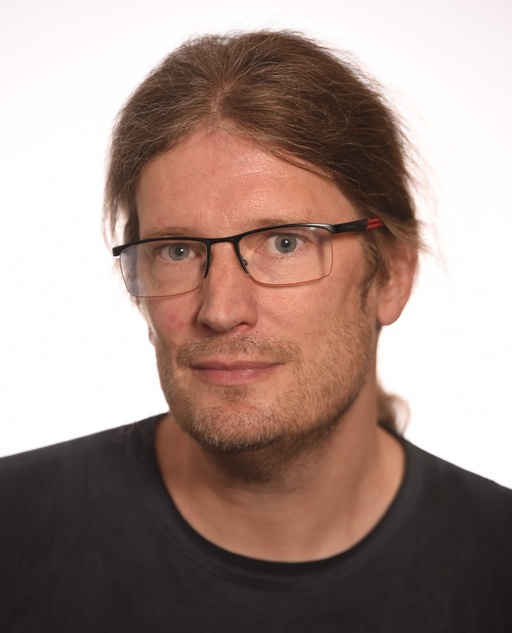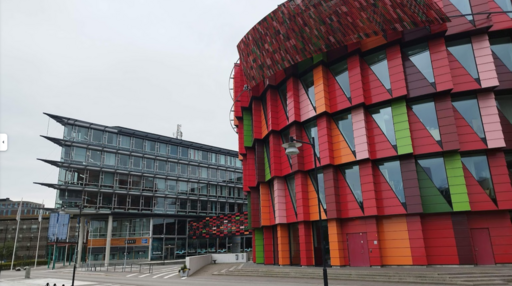2025 Nordic Workshop on AI for Climate Change
Event date: 2025-05-13
Event location: Gothenburg, Sweden

As extreme events following climate change are getting ever more frequent, humanity needs to tackle the new reality on a changing planet on many fronts. Many of the approaches which are in use or under development can be strengthened using advanced analytics tools and optimization techniques. The 2025 Nordic Workshop on AI for Climate Change will gather researchers from the Nordics. This one-day, in-person workshop, will take place in Gothenburg, Sweden, May 13th 2025. The workshop will feature a mix of keynotes, oral presentations, and posters around the topics of AI for climate change, including AI for biodiversity and the green transition. The workshop will be a meeting point for a wide range of researchers from (primarily) around the Nordic countries, but other interested people will be welcome too.
Together, we will help the Nordic AI community to find the most impactful directions of future research in the field.
A Short Gothenburg Guide
Click here to see the Gothenburg guide.
Shedule
Click here to see the workshop schedule.
Speaker instructions
Click here to see the speaker instructions.
Keynotes
Oisin Mac Aodha, University of Edinburgh

Oisin Mac Aodha is a Reader (aka Associate Professor) in Machine Learning in the School of Informatics at the University of Edinburgh (UoE). He was a Turing Fellow from 2021 to 2024, currently an ELLIS Scholar, and a founder of the Turing interest group on biodiversity monitoring and forecasting. Oisin’s current research interests are in the areas of computer vision and machine learning, with a specific emphasis on 3D understanding, human-in-the-loop methods, and computational challenges in biodiversity monitoring.
Christian Igel, University of Copenhagen

Christian Igel is a professor at DIKU, the Department of Computer Science at the University of Copenhagen. He is the director of the SCIENCE AI Centre. Furthermore, he is a co-lead of the Pioneer Centre for Artificial Intelligence, Denmark and a Fellow of ELLIS, European Lab for Learning and Intelligent Systems. Christian’s reserach interests include support vector machines and other kernel-based methods,evolution strategies for single- and multi-objective optimization and reinforcement learning, PAC-Bayesian analysis of ensemble methods, deep neural networks and stochastic neural networks, and applications of machine learning that help achieve the sustainable development goals.
Oral presentations
For more information about the program, check the detailed schedule.
- Dan Stowell, Tilburg University: Bioacoustic AI for nature: how can it tread lightly?
- Stefanos Georganos, Karlstad University: Unequal Cities in a Changing Climate: AI and Geospatial Approaches to Urban Resilience
- Alouette van Hove, University of Oslo: Navigating methane plumes: A journey from drone observations to flux estimates
- Edmond Sacre, Swedish University of Agricultural Sciences: Mapping and conservation of aquatic species - potential advances with deep learning
- Shorouq Zahra, RISE Research Institutes of Sweden: The challenges of using LLMs to extract data on extreme climate events
- Nico Lang, University of Copenhagen and Pioneer Centre for AI: Learning From Global Earth Observation Data
- Hilda Sandström, Aalto University: Machine Learning for Mass Spectrometry in Atmospheric Chemistry
- David Thulke, RWTH Aachen University: Assessing and Improving ClimateGPT’s Faithfulness in Retrieval Augmented Generation
- John Martinsson, RISE Research Institutes of Sweden: Better Labels, Better AI: Enhancing Bioacoustic Event Detection for Biodiversity Monitoring
Poster presentations
The workshop will also have a poster session with 30 posters, check the schedule for details.
Topics
The workshop will feature presentations about Earth observation, computer vision, soundscape analysis, natural language processing, geometric machine learning, optimization, natural language processing, and multimodal modeling for climate related applications. Applications in green infrastructure, species distribution modeling, biodiversity monitoring.
Further topics of interest: The role of policy change, the use of AI to tackle climate change within built environments, transport, material, and product development. AI method development that benefits AI applications within climate change mitigation and adaptation.
Workshop information

Date and time: 2025-05-13, 09:00-18:00 + Social dinner until late
Place: Lindholmen Science Park, Lindholmspiren 5, Gothenburg, Sweden
Organization
The workshop is organized by Climes, The Swedish Centre for Impacts of Climate Extremes in collaboration with Climate AI Nordics. The day will end with a poster session and dinner.
Pricing
The deadline for registering to this workshop was March 31. For questions, or to be added to the waiting line, contact the organizers.
The fee for registration is SEK 1000, including lunch and coffee. Invoices will be sent out to attendees subject to the registration fee.
A limited number of students will be reimbursed for travel and hotel for the workshop. The deadline for applications have now run out and we have contacted the students who were selected for funding.
